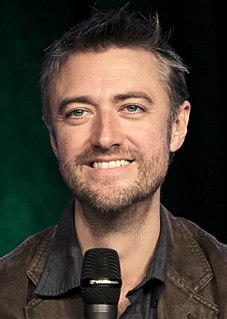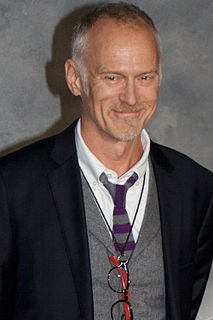A Quote by Julia Scheeres
Jim Jones used highly-edited videos and photos of Jonestown, showing what a supposed Eden it was. People were interviewed smiling and working in the fields, telling other church members to hurry down and join them. These interviews were staged; the people were told exactly what to say. Truth is, Jonestown never even produced enough food to feed everyone, and people were going hungry.
Related Quotes
I think the folks who joined Jim Jones's church did so because they truly believed in his stated ideals of racial equality and social justice. That's why he was able to convince one thousand of them to immigrate to the jungle of Guyana. Although history has stigmatized Jonestown residents as the people who "drank the Kool-aid," I'd argue that they were noble idealists. Furthermore, they were murdered. They didn't willingly drink poison - they were forced to do so at gunpoint. They sought the ideal, only to have their leader horribly betray them.
To be honest, I didn't want to get inside Jones's head. Every time I wrote about Jim Jones I practically had to tie myself to my chair to force myself to do it; I hated him so much. He wanted to go down in history and he did. He's had hundreds of books and articles written about him. I was much more interested in the stories of the rank-and-file members of Peoples Temple, what drew them to Jones, and what they did once they were trapped in Jonestown and realized Jones was intent on killing them.
If churches saw their mission in the same way, there is no telling what might happen. What if people were invited to come tell what they already know of God instead of to learn what they are supposed to believe? What if they were blessed for what they are doing in the world instead of chastened for not doing more at church? What if church felt more like a way station than a destination? What if the church’s job were to move people out the door instead of trying to keep them in, by convincing them that God needed them more in the world than in the church?
Before the church responded, a lot of people would ask us, 'Are you afraid of what the church would say?' And Trey and I were like, 'They're going to be cool.' And they were like, 'No, they're not. There are going to be protests.' And we were like, 'Nope, they're going to be cool.' We weren't that surprised by the church's response. We had faith in them.
We were fortunate at that time we were working with Virgin, and with Flood, probably more well-known as Brian Eno's engineer now and U2's producer, etc. Even though we weren't working in a strictly popular music area, which was great, we were lucky enough to work with people who were on the cusp of those sort of things.
Early evening traffic was beginning to clog the avenue with cars. The sun slanted down behind him. Harry glanced at the drivers of the cars. They seemed unhappy. The world was unhappy. People were in the dark. People were terrified and disappointed. People were caught in traps. People were defensive and frantic. They felt as if their lives were being wasted. And they were right.
Go back to the Bible, the Old Testament. I mean there were people who we would call intelectuals, there, they were called prophets, but they were basically intelectuals: they were people who were doing critical, geopolitical analysis, talking about the decisions of the king were going to lead to destruction; condemning inmorality, calling for justice for widows and orphans. What we would call dissident intelectuals. Were they nicely treated? No, they were driven into the desert, they were imprisoned, they were denounced. They were intelectuals who conformed.
Prophet just means intellectual. They were people giving geopolitical analysis, moral lessons, that sort of thing. We call them intellectuals today. There were the people we honor as prophets, there were the people we condemn as false prophets. But if you look at the biblical record, at the time, it was the other way around. The flatterers of the Court of King Ahab were the ones who were honored. The ones we call prophets were driven into the desert and imprisoned.
In California, Jim Jones even staged a shooting of himself. The lesson of this was two-fold. One, that he was a god - he could heal himself. He had these magic powers. A large segment of his congregation came from a Pentecostal tradition that believed in faith healing and already believed Jones had the power to cure others. And two, the "shooting" made him seem important. Civil rights leaders were being gunned down - MLK, Jr., Medgar Evers, Malcolm X - and he longed to be considered as heroic and important as they were.
David's mother would often tell him stories were alive. They weren't alive in the way people were alive,or even dogs or cats. People were alive whether you chose to notice them or not, while dogs tended to make you notice them if they decided that you weren't paying enough attention. Cats, meanwhile, were very good at pretending people didn't exist at all when it suited them.




























